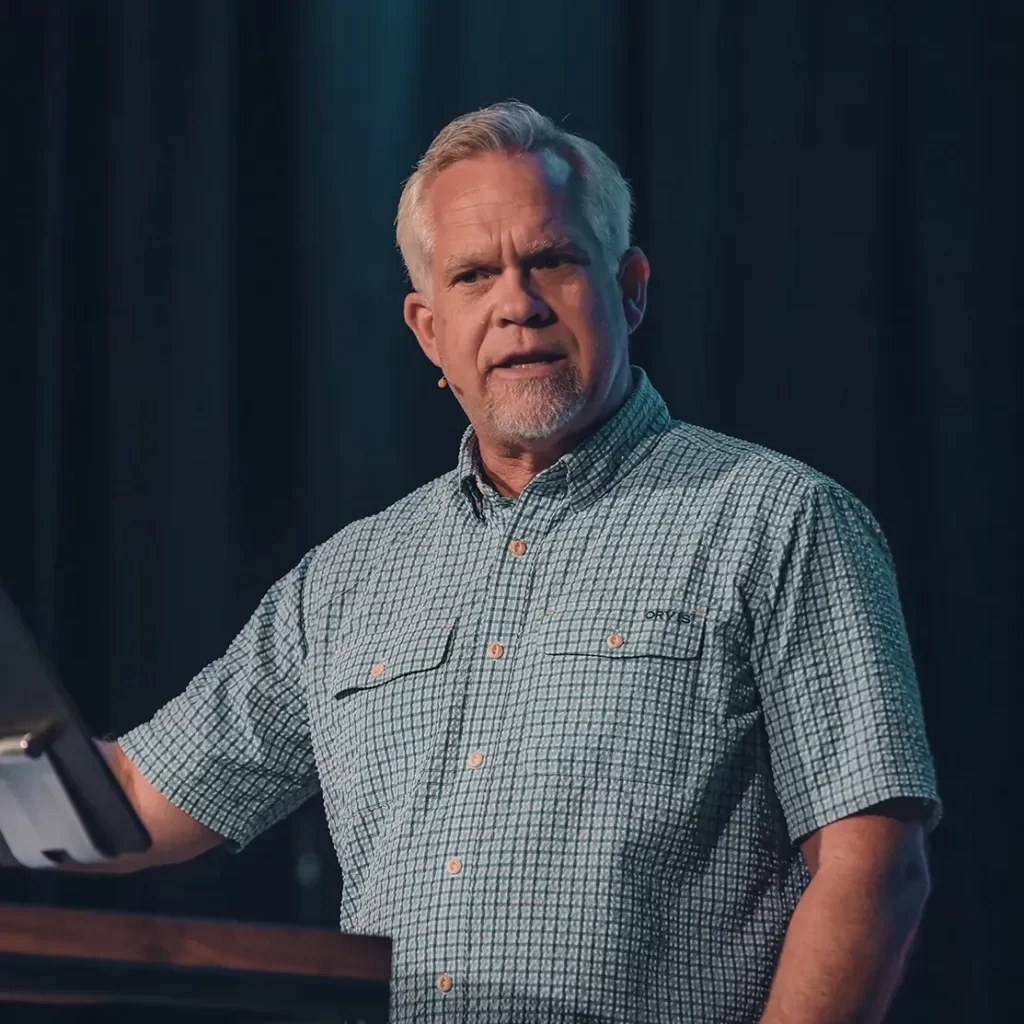God had been reaching out to the dysfunctional Herod family for generations, and Agrippa II was the last of the Herodian line. Agrippa II was only 17 when God struck his father down with parasites for basking in the adoration of a crowd instead of deflecting their worship and giving glory to God (Acts 12:21-23). Because Agrippa II was young when his father died, he ruled Judea under the tutelage of a Roman-appointed procurator, who was the one really in charge. Agrippa had not been raised in a bubble, so he knew about the People of the Way—the Christians, as they had come to be known.
Agrippa II also knew about the growth of the Christian movement; he knew how that growth made the Jewish leadership writhe in fury. He knew that Christians willingly suffered and died rather than recant their faith in Jesus—and it piqued his curiosity.
Regardless of whether it was simply a morbid curiosity or an intellectual interest in what made people give up everything for their faith, the king wanted to learn more. God gave Herod Agrippa II the opportunity to hear straight from the mouth of one of the most famous men in Christian history. Ironically, this particular Christian, the Apostle Paul, had been a persecutor of Christians just as Agrippa’s father, grand-uncle, and great-grandfather had been.
Paul the Apostle, a highly educated Pharisee, had been radically saved 20 years before right in the middle of a brutal crusade against the People of the Way. After that, Paul was harbored by a brave Christian named Ananias, and mentored by the Holy Spirit before publicly and boldly preaching for the One Whom he had formerly preached against.
God had told Ananias that He was going to use Paul to bring souls to Himself but in the process, Paul would reap what he had sown. Before he was saved, Paul had ‘sown’ the persecution and death of Christians and God was not going to supernaturally override His natural law of sowing and reaping. Instead, he would allow Paul to harvest on Earth what he had planted (Acts 9:1-21) before going to his glorious reward in Heaven. God keeps His promises; He did use Paul to bring tens of thousands of converts to Himself, and his ministry did include whippings, beatings, stoning, shipwrecks, and ultimately, a martyr’s death.
Fast forward through many years of ministry. Now back in Jerusalem, Paul was facing yet another inhumane flogging at the hands of the Roman guard, simply because the incensed Jews had requested it. Paul mentioned to the captain in charge of the ‘interrogation’ one small fact that gave the man pause (Acts 22:25). Turns out Paul was a Roman citizen (having been free-born in the province of Tarsus), and as such, he carried a get-out-of-a-whipping-without-trial-free card. Over the many years of his ministry, Paul could have verbally presented that card at any time in any of the small towns that flew the Roman flag and had abused him for witnessing there.
Shocked at Paul’s revelation, and fearful of getting into trouble by proceeding with the flogging, the captain ordered Paul held safe in the barracks until he could be extradited to the Roman governor in Caesarea. Once there, Paul was held in Herod’s praetorium, the palace where the governor lived, as he awaited trial.
It may seem that we’ve taken a vast detour from God’s reaching out to the generations of the evil and dysfunctional Herod family. That is until we discover that the Roman governor was married to Agrippa’s sister, Druscilla. Acts 24:22 says that Governor Felix had “rather detailed knowledge of things connected with the Way” (CJSB, The Complete Jewish Study Bible). Acts 24:24 says,
After some days, Felix came with his wife Druscilla, who was Jewish. He sent for Sha’ul and listened to him as he spoke about trusting in the Messiah Yeshua. But when Sha’ul began to discuss righteousness, self-control, and the coming Judgment, Felix became frightened and said, “For the time being, go away! I will send for you when I get a chance.”
“When I get a chance.” It would be two years before God would reach out again to draw the Herod family to Himself through His emissary, Paul. Meanwhile, Paul was allowed to come and go freely and share the Gospel in Caesarea—as long as he spent every night in the praetorium!
After two years, Festus replaced Felix as governor and Paul’s old accusers from Jerusalem started in again. This time, they insisted he be sent back to stand trial before the Sanhedrin. Knowing that they would try again to ambush him en route, Paul asked to be tried by Caesar, as was his right as a Roman citizen. His appeal was granted, but before he could leave for Rome, God in His infinite mercy gave the last of the Herodian family line a final chance to hear the gospel clearly.
Agrippa II and his sister/wife arrived in Caesarea to pay their respects to the new governor. (Yes, history records that he was in an incestuous relationship with his other sister, Bernice!) Festus told them about Paul, and Agrippa remarked, “I myself have been wanting to hear the man” (Acts 25:22).
King Herod Agrippa II and both of his sisters got to hear the plan of salvation from the lips of Paul the Apostle. Did they respond in faith? The Bible doesn’t tell us whether they later pondered Paul’s words in the quietness of their rooms and silently accepted Jesus’ gift of salvation. However, we are told what happened right after Paul concluded and Governor Festus told him he was out of his mind to believe that Jesus had been raised from the dead. Ignoring Festus, Paul turned to Herod Agrippa II and said,
“On the contrary, I am speaking words of truth and sanity. For the king understands these matters, so to him I express myself freely, because none of these things have been hidden from him. After all, they didn’t happen in some back alley. King Agrippa, do you believe the prophets? I know you believe!” (Acts 26:24-26, CJSB).
Herod Agrippa’s response to Paul’s plea for his soul is one of the saddest recorded in the Bible: “In this short time, you’re trying to convince me to become Messianic?” Or, as the King James Version puts it, “Then Agrippa said unto Paul, ‘Almost thou persuadest me to be a Christian.’”
Almost persuaded. It is said that ‘almost’ only counts in horseshoes and hand grenades. When it comes to our eternal souls, there is no ‘almost.’ It is either eternity in Heaven with Jesus or eternity in Hell with the enemy of our souls—and the enemy will do anything to keep our souls from Heaven.
With Herod Agrippa II, the enemy used procrastination. It’s easy to put off such a decision until another time—a more convenient time; like, maybe, tomorrow. The trouble is none of us are guaranteed ‘tomorrow.’ Agrippa II should have learned that lesson when his father dropped in his tracks and died of worms.
God sums up 2 Corinthians 6:2 with, “Behold, now is the accepted time; behold, now is the day of salvation” (NKJV). He emphasizes the word “now” by repeating it. God also asks us at the beginning of Hebrews 2:3, “How shall we escape if we neglect so great a salvation, which at the first began to be spoken by the Lord, and was confirmed to us by those who heard Him?” (NKJV)
God didn’t want the dysfunctional political family to neglect the great salvation He offered them. From the very beginning and throughout their generations, God reached out to them. Agrippa II and his sisters Druscilla and Bernice were the last of the Herodian political dynasty. Unless those three later reflected on Paul’s testimony and accepted Jesus as Savior, they died in their sin just like the rest of the Herodians.
God reaches out to all of us and if we stop to think about it, He has always been calling to us in various ways. Sometimes He uses circumstances that nearly shout at us to acknowledge His Lordship. Sometimes He calls with a still, small voice that pleads with us to come to Him now.
If you haven’t been saved, will you accept Jesus’ perfect blood as atonement for your sin and step into His loving Lordship today? Now?
And if you have questions about exactly how to accept Jesus’ gift, or you don’t know what to say when you talk to God, please email us at info@steveberger.org or call our office at (615) 667-6679. We’d be honored to guide you.




